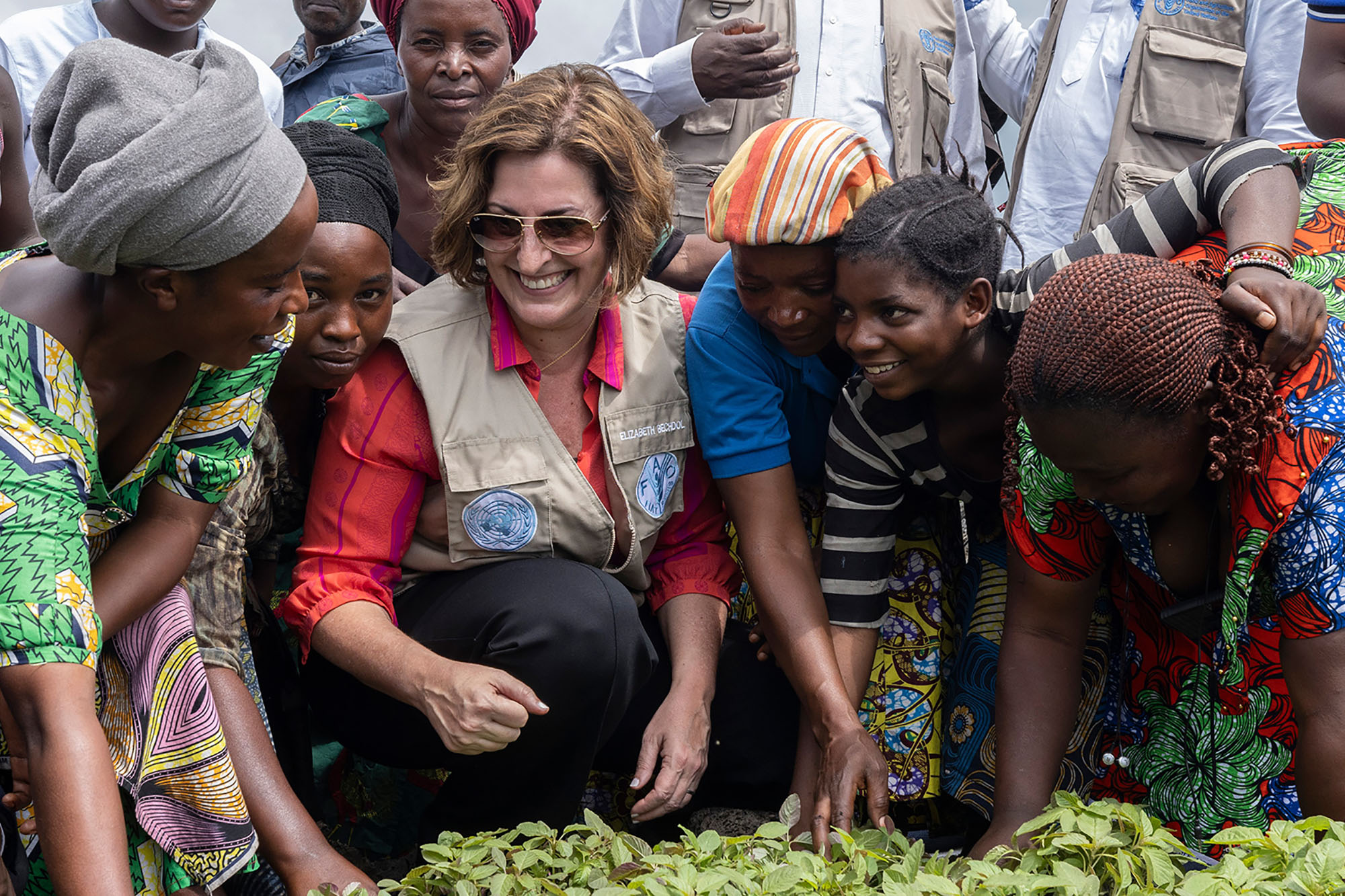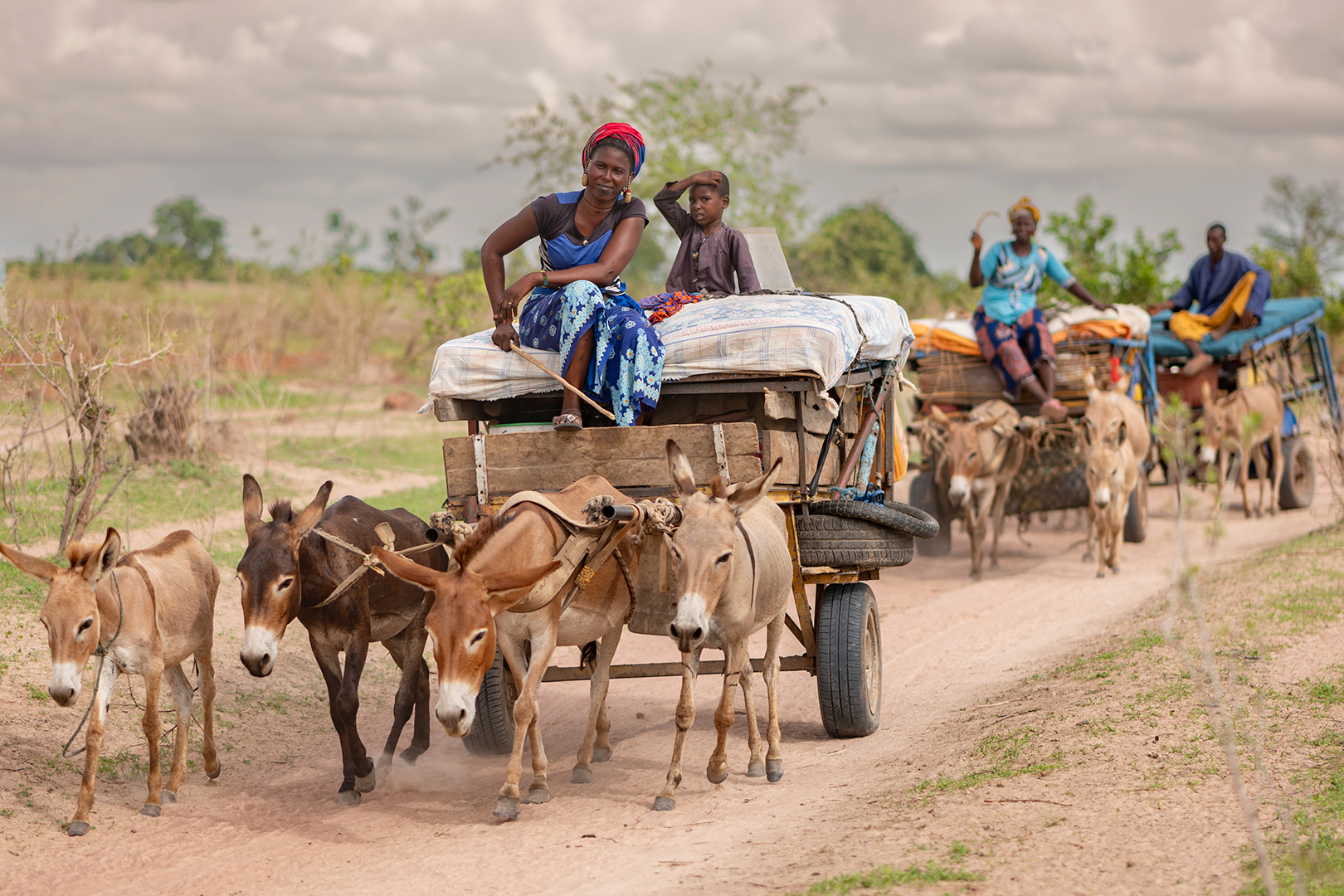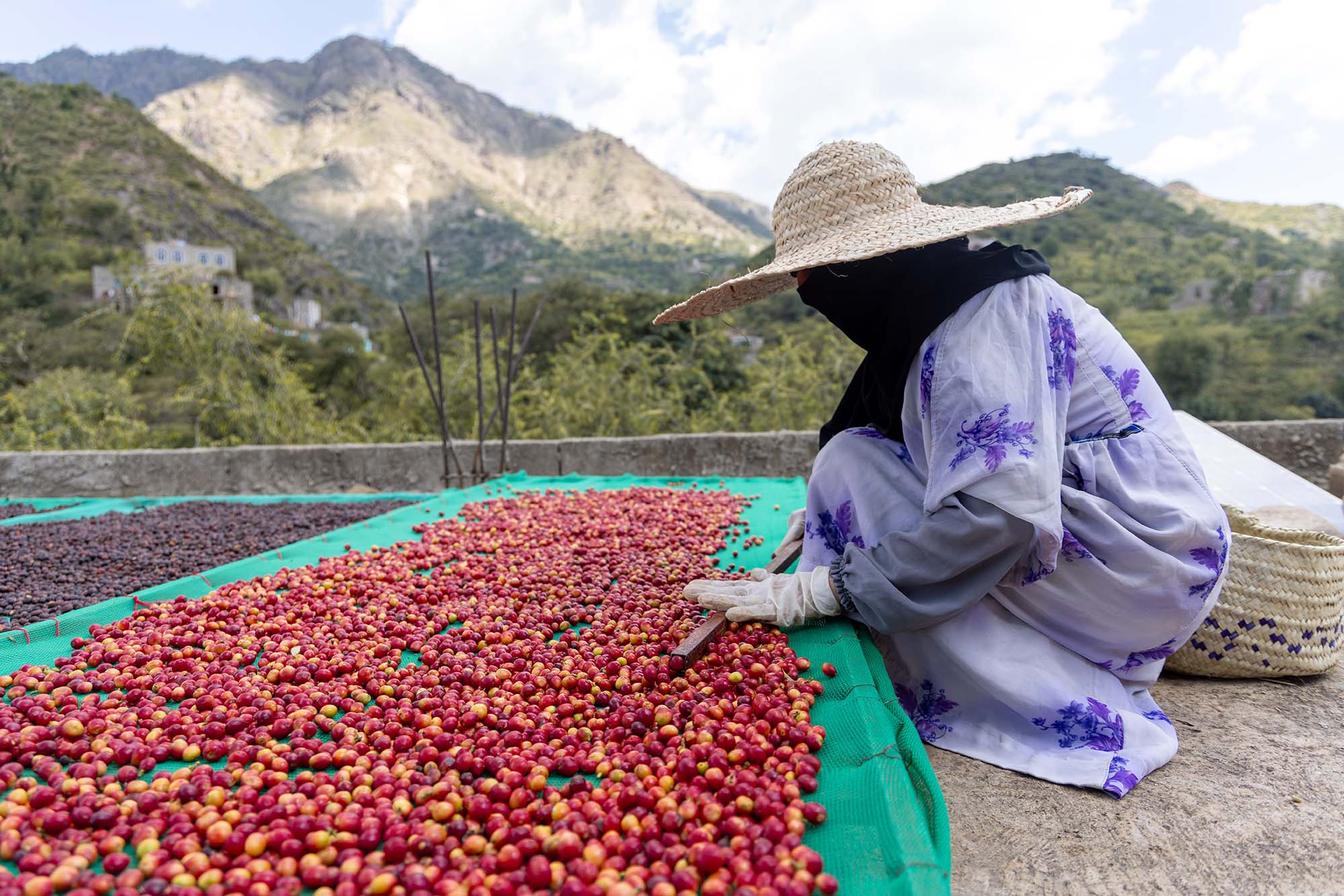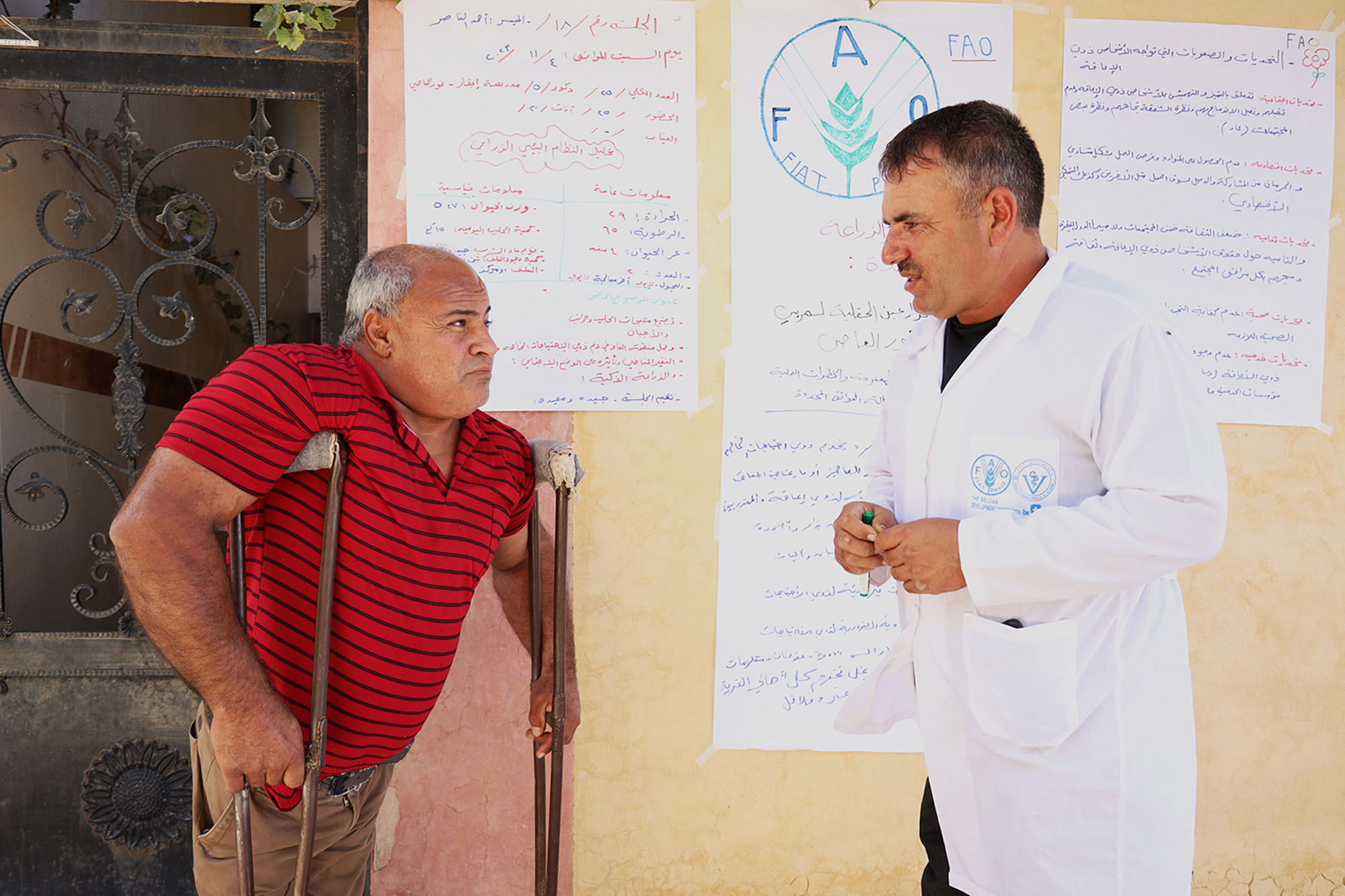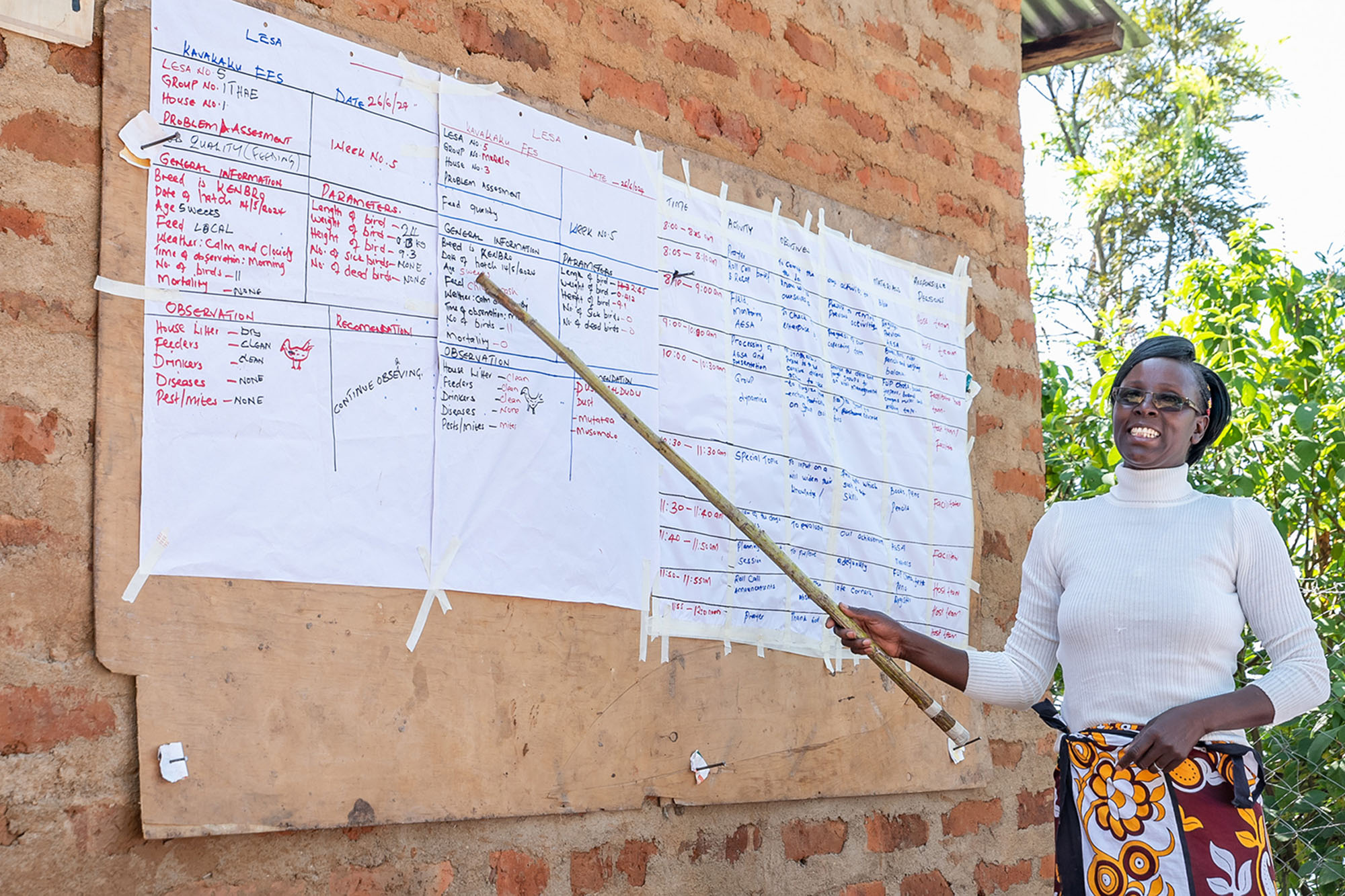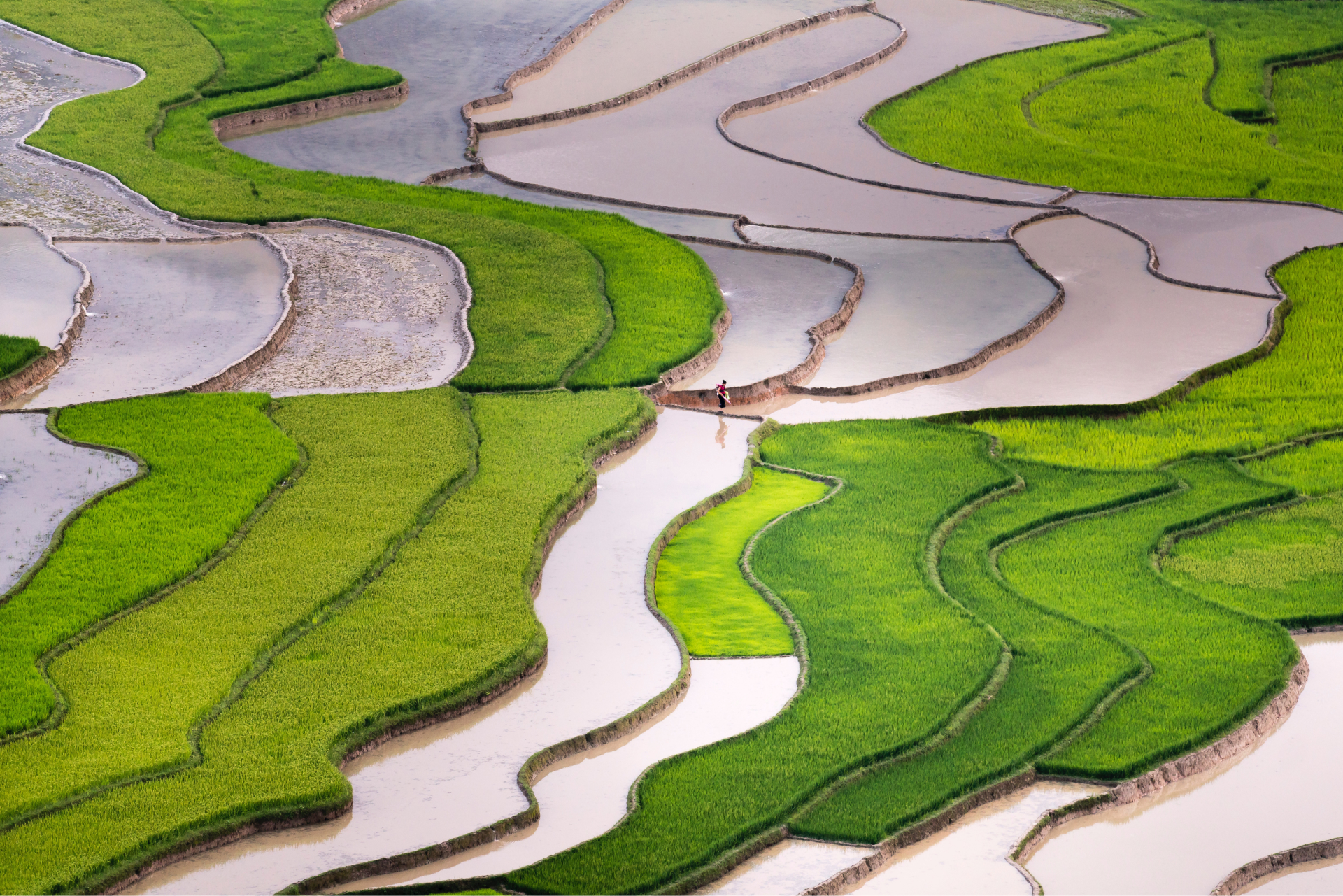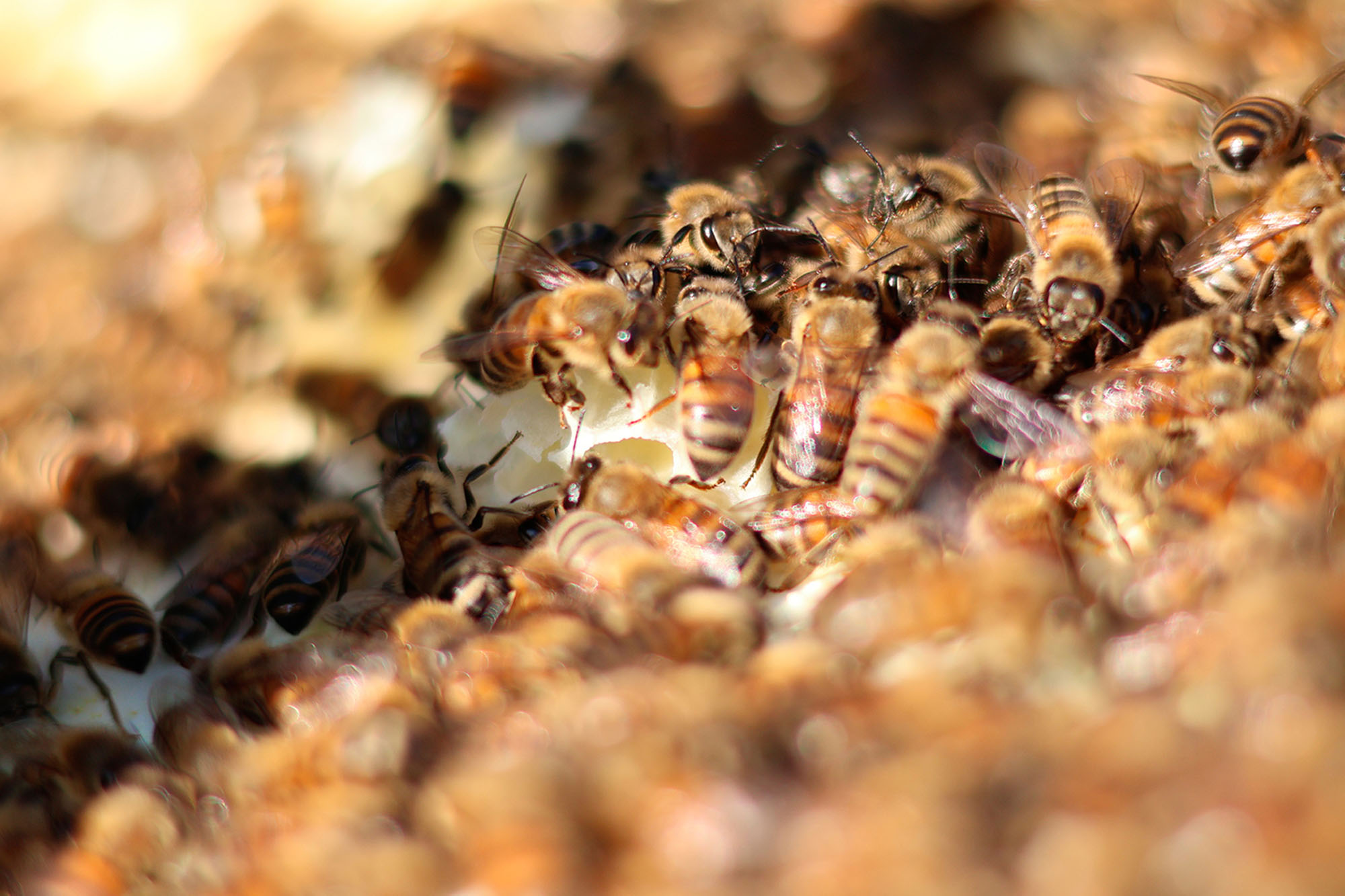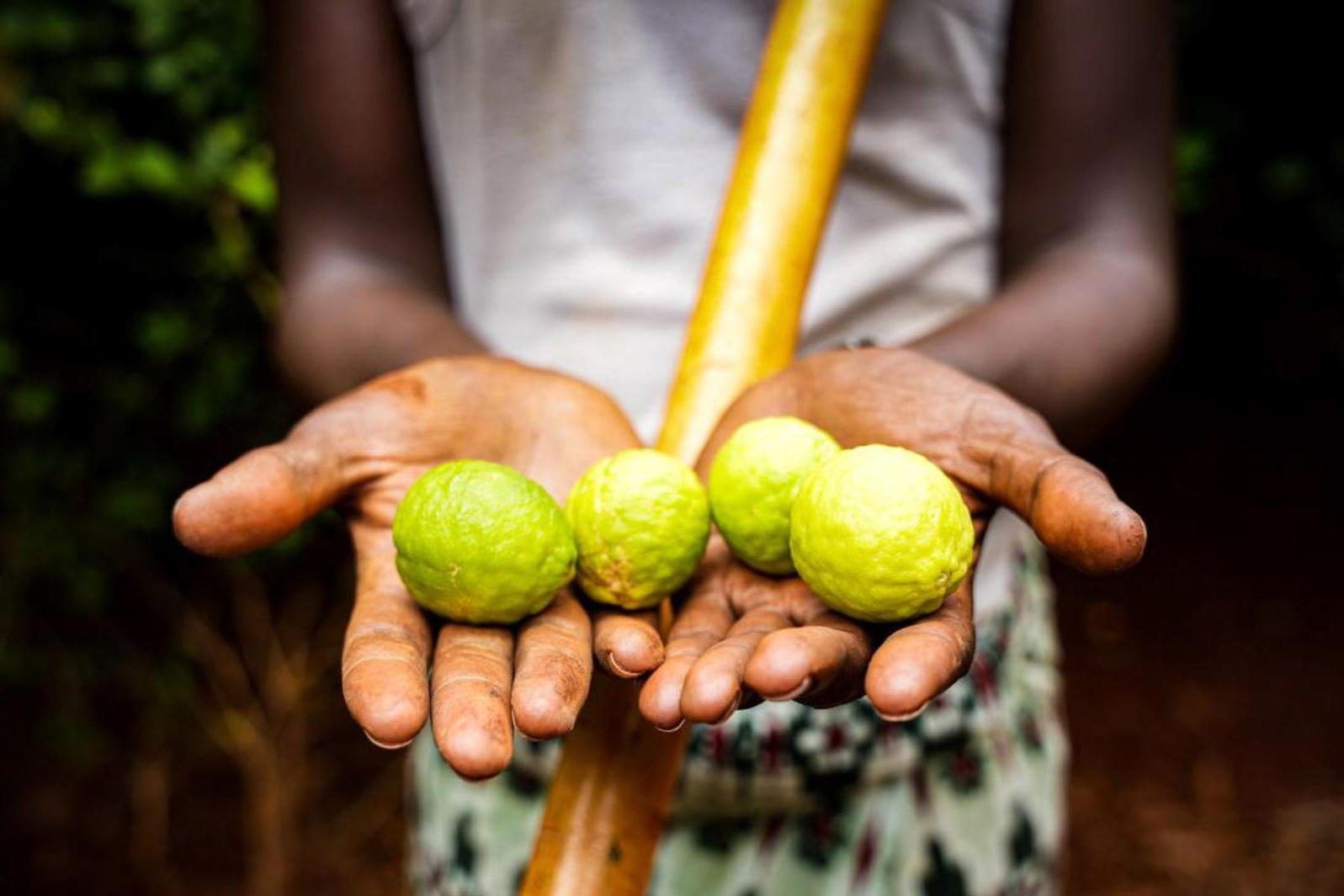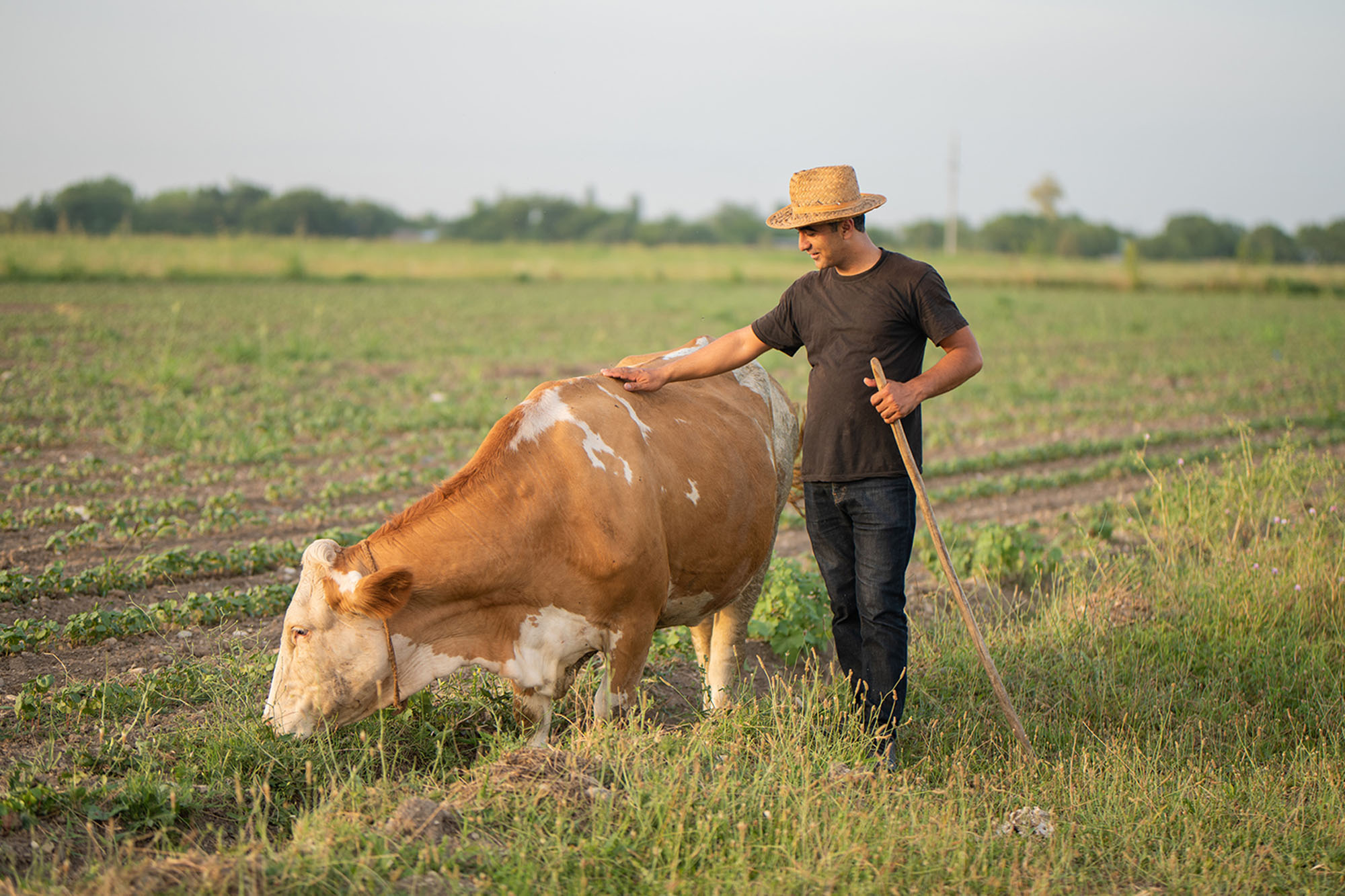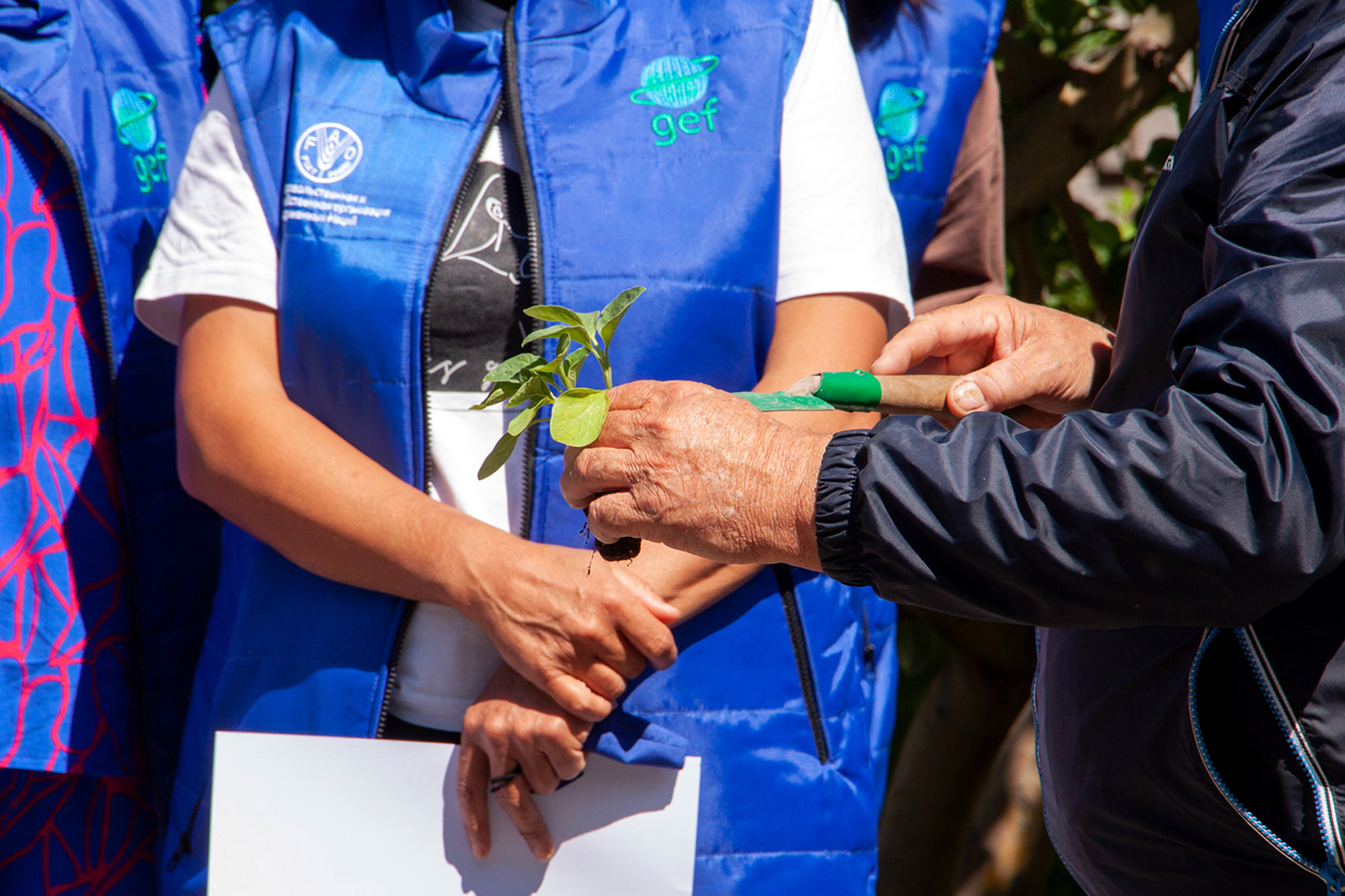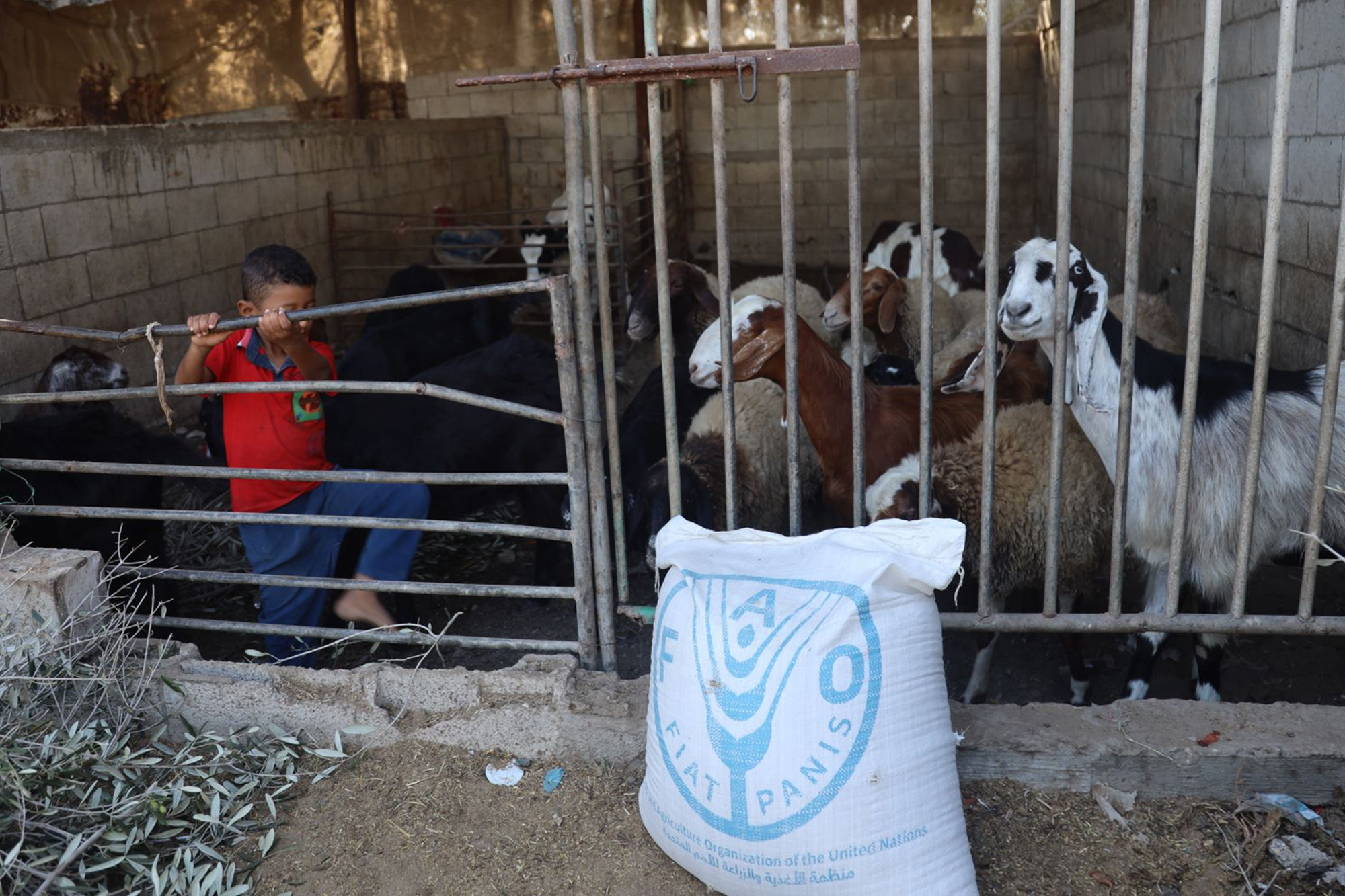In the Rusayo camp near Goma, Democratic Republic of the Congo, 32,500 Internally Displaced Persons live in temporary shelters due to ongoing conflict. Just 18 kilometers from the frontline, they endure the sounds of gunfire and explosions, seeking safety for their families. The camp is overcrowded, stretching resources thin and increasing security risks from armed groups. Food insecurity is a pressing issue, prompting support from the Food and Agriculture Organization (FAO), which assists 25,000 vulnerable households in North Kivu and Ituri. FAO provides cash vouchers and resources for micro-gardening and livestock production. These micro-gardening kits enable families to grow vegetables while integrating animal breeding to enhance soil fertility. With access to quality seeds and animals, residents can improve their diets and generate income through selling their produce and animal products.
Agriculture and Food
In Senegal's Bousra Ndawène village, pastoralists from Senegal, Gambia, Mali, and Mauritania travel annually along a 110-km transhumance corridor, seeking fresh pastures for their livestock. Babacar Ndaw, a local farmer and breeder, helps manage resources, balancing the needs of both pastoralists and locals. The Regional Sahel Pastoralism Support Project (PRAPS) has improved infrastructure, animal health services, and water access, reducing conflicts and supporting over 350,000 pastoralists in Senegal. PRAPS aims to assist more than a million pastoralists by 2027, preserving pastoralism while ensuring sustainable resource use.
With IFAD's support, rural farmers in North Africa and the Middle East are improving their marketing skills, boosting incomes, and gaining recognition for their high-quality products.
For Saeeda, a coffee farmer in Taiz, Yemen, her work is a legacy. Growing up on her family’s farm she learned to care for coffee trees from her parents. Now, as she tends to her family’s 8,400-square-metre plot, her love for the land and dedication to Yemen’s coffee heritage drive her amidst challenges from climate change. With rainfall declining, coffee farmers face significant hardships. To help, the United Nations Development Programme (UNDP), in partnership with the Public Works Project and funded by the World Bank, has built rainwater-harvesting tanks in the region. These tanks have helped farmers like Saeeda maintain their crops during droughts. Saeeda dreams of a future where Yemeni youth continue the coffee legacy, encouraging them to recognize its economic and cultural value.
FAO’s Action Against Desertification helps farmers restore land and grow crops to combat desertification and poverty.
Ahmad Al Nasser credits his success to self-belief and helping others overcome challenges. As a facilitator of a Farmer Field School in rural Hama, Syria, he has lived with a physical disability due to polio since childhood. With over 25 years of experience, he completed his education at the Veterinary Technical Institute and became a certified technician in bovine artificial insemination. Now, he works with 25 cattle keepers, sharing knowledge to improve livestock production. Under Ahmad’s guidance, local farmers achieved significant results, processing their own dairy products and increasing profits by bypassing middlemen. They also started producing organic compost and fodder for their cows.
Esther Munani Kyalo, a mother of three from Miambani ward in Kitui County, Kenya, has changed her routine over the past few months. Every Tuesday, she joins around 35 other women at the Kavakaky Farmer Field School to breed chicks in a new poultry house. Under a large mango tree, the community gathers to discuss and improve their husbandry practices. In Kenya's arid and semi-arid regions, livestock production, including beekeeping and chicken brooding, is vital for family income. Transitioning to commercial farming can improve incomes and reduce rural poverty, and Farmer Field Schools are key to this change. The Food and Agriculture Organization (FAO) supported Kenya’s National Agricultural and Rural Inclusive Growth (NARIG) project, reaching nearly 300,000 farmers in eight years.
The video will showcase impactful projects in sustainable agriculture and land management, emphasizing the leadership of women and youth in shaping policies for NENA's sustainable development.
We can already see the effects of climate change - global temperatures are rising, extreme weather events are intensifying, severe wildfires are becoming more frequent and water scarcity is worsening. FAO’s Climate Change Strategy focuses on making food and farming systems sustainable, fair, and strong enough to handle climate change. The UN's food and agriculture agency works with countries to improve climate policies and plans, supports farming-focused solutions, and helps countries access funding for climate-friendly projects. FAO helps countries adopt better farming practices, create new policies, and use new tools to reduce greenhouse gases and adapt to climate changes. It also works directly with communities to restore farmland, protect forests, improve water use, and promote eco-friendly farming, aiming to include farmers, women, youth, and Indigenous groups in all efforts.
Martha Adjorlolo’s beehives in Donkorkrom, Ghana, are both her livelihood and passion. Despite starting beekeeping only a year ago, she is dedicated to sustainable practices, using local methods like top bar hives and natural repellents such as lemongrass oil. Her recent training by the Food and Agriculture Organization of the United Nations (FAO) emphasized the need to minimize chemical and antimicrobial use for the health of bees, food safety, and the environment. The workshop highlighted the dangers of Antimicrobial Resistance (AMR), which occurs when microorganisms become resistant to treatments, resulting in increased illness and mortality in various species.
The Degaan Bile project demonstrates the power of collaboration and innovation in empowering Somali farmers to adapt to climate change and build a sustainable future.
Bodo and Sanda are reinventing entrepreneurship in Madagascar, creating jobs and empowering youth through IFAD's Agribusiness Hubs.
“Tarakama” is a traditional nomadic pastoral lifestyle practiced by Azerbaijani communities who move with the seasons. Mahammad Bayramov, from Aghdam, has lived this way since childhood, traveling with his family’s livestock. Each year, Mahammad’s family and five others move their herds to the mountains, where collaboration helps them manage the animals more effectively. Raised with livestock, Mahammad and his community relied on them for income, leading to the formation of Eko-Süd (Eco-Milk), a cooperative focused on milk and dairy production. However, they faced significant challenges due to manual, labor-intensive processes that limited their profits. In 2023, a partnership with the Food and Agriculture Organization (FAO) and the Government of Azerbaijan provided essential tools, including feed grinders and a dairy processing facility. This support allowed Eco-Milk to grow to 23 members, enabling efficient production of cheese and butter sought after in Baku and beyond.
Aishagul Duganova, a 48-year-old mother of three from Koram, Kazakhstan, finds hope in her new greenhouse amid family health issues and financial struggles. After her husband's injury and her elderly parents-in-law's illnesses forced her to abandon work, Aishagul faced overwhelming debt from medical expenses. Her situation changed when her sister-in-law connected her to a greenhouse training program funded by the Global Environmental Facility through the Food and Agriculture Organization pof The United Nations (FAO) project CACILM-2. This initiative aims to empower rural women by providing them with skills in sustainable farming, enabling Aishagul to cultivate food independently.
The ongoing conflict in Gaza has led to a collapse in local food production, with nearly 86 percent of the population—about 1.84 million people—facing severe food insecurity and a risk of famine. Amid this crisis, Hakmah El-Hamidi has lost half of her livestock, severely impacting her family's livelihood. Despite the challenges, she expresses gratitude for the assistance from the Food and Agriculture Organization (FAO), which has provided fodder to help her animals recover. FAO has distributed fodder to over 4,400 livestock-keeping families and supplied veterinary kits to around 2,400 families across Deir al-Balah, Khan Younis, and Rafah, helping to improve animal health and preserve livelihoods in the region.

